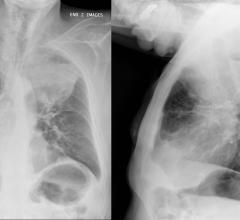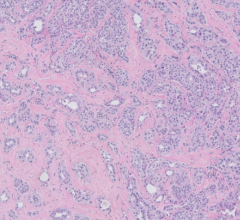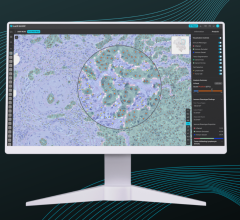
April 30, 2019 — New research has shown a combination of biological markers and certain genetic changes can predict radiation sensitivity and may help identify cancer patients more likely to suffer adverse side-effects after radiation therapy. In addition, the international team of researchers in the REQUITE project found further evidence to support an earlier finding in a smaller group of breast cancer patients that the time of day when radiotherapy is given can affect whether or not patients with particular gene variants suffer from adverse side effects.
Results from the REQUITE project were presented at the 38th European Society for Radiotherapy and Oncology (ESTRO) Congress, April 26-30 in Milan, Italy.
Chris Talbot, Ph.D., senior lecturer at the University of Leicester (UK), said that findings could help doctors to assess which patients were most likely to suffer from side effects of radiotherapy, and either change the radiation dose or plan other ways to avoid the side effects.
"We know that patients vary in the way they respond to radiation treatment. Approximately 5 percent are sensitive to it and at risk of suffering side effects, but we don't have a reliable way of identifying these patients. So radiation doses for all patients are currently limited by the risk of side effects in the most sensitive patients. This is the largest study to date to assess the use of biomarkers to predict radiotherapy-related toxicity," he said.
A total of 4,438 patients in 26 hospitals in eight countries — France, Germany, the U.S., Italy, Belgium, Spain, The Netherlands and the U.K. — enrolled in the REQUITE project, which started in 2014 and finished in September 2018. The patients had breast cancer (2,069 patients), lung cancer (561) or prostate cancer (1,808). Before receiving radiotherapy, they completed a short questionnaire and provided a blood sample that was analyzed for approximately 250,000 genetic variants called SNPs (single-nucleotide polymorphisms) in the complete genetic material of each patient (genome-wide), and a similar number of SNPs that are known to be associated with cancer.
The researchers also tested for other biomarkers that might predict sensitivity to radiation treatment. One of these, called radiation-induced lymphocyte apoptosis (RILA), is a measure of the percentage of white blood cells (lymphocytes) that are killed by radiation.
Talbot said, "A low percentage of radiation-induced cell death is associated with worse side effects, although we don't know why this is. It may show that the state of the immune system on the day of radiotherapy is important."
Researchers followed up the patients until September 2018 to see who suffered short- or long-term adverse side effects; these included urinary problems or rectal bleeding for prostate patients, and pain or scar tissue in breast cancer patients.
They found that people who smoked had fewer lymphocyte cells killed by radiation and, therefore, were likely to be at higher risk of side effects. Interim results after one year of follow-up had shown that RILA could predict longer-term side effects such as urinary problems in men with prostate cancer and worse scar tissue in breast cancer patients. However, as the researchers expected, the most recent analysis showed that RILA could not predict which patients would suffer acute adverse side effects — those that occur during or just after radiotherapy, such as the skin burn that occurs in some breast cancer patients. The exception was acute breast pain; low RILA predicted which breast cancer patients would be affected by this in the short term.
"This suggests that acute breast pain may be caused by different biological mechanisms than other radiation-induced side effects," said Talbot.
Earlier analysis of 343 breast cancer patients from the REQUITE study and 535 patients from another study (Leicester, Nottingham and Derby [LeND] study) had found side effects from radiotherapy were affected by whether or not patients had a natural preference for the morning or the evening. Patients with variations in the PER3 or NOCT genes, which are associated with having an evening preference, had worse side effects if they received radiotherapy in the morning. The latest analysis of all the REQUITE patients has found that variations in these genes also have the same effect for acute diarrhoea in prostate cancer patients.
"If these findings are confirmed, we could avoid side effects in patients simply by testing for these genes and then advising on the best time of day to be treated," said Talbot. "We are currently working on the biological mechanisms involved, but in breast cancer patients we believe it is due to the timing of the division of skin cells."
He concluded: "Before these findings can be implemented in the clinic, we need to carry out further research in larger groups of patients and in more countries. Then we need to do a clinical trial to investigate timing of treatment and to show that this does, indeed, reduce the occurrence of adverse side effects."
Pierfrancesco Franco, M.D., Ph.D., associate professor in the Department of Oncology at the University of Turin, Italy, and chair of the ESTRO Young Committee, said, "This study is an elegant demonstration of how translational research potentially can help oncologists during the clinical decision-making process in order to offer patients a personalised approach that balances the need to control the tumour with the need to minimise the side effects on normal tissues, optimising radiotherapy treatment."
For more information: www.estro.org


 April 18, 2024
April 18, 2024 








